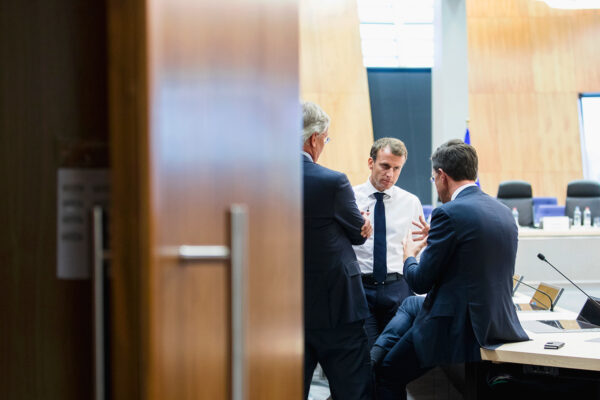
The worst argument against French president Emmanuel Macron’s latest EU reform push — made, among others, by the Russian-born Leonid Bershidsky, who writes for Bloomberg View from Germany, and the Dutch political commentator Peter van Nuijsenburg — is that it only provides ammunition for rival parties opposed to more European integration.
There are fair criticism to be made. Bershidsky also argues that Macron’s call for a European “renaissance” largely consists of adding more EU agencies and that what the bloc really needs is a shared Franco-German vision.
But the idea that less ambitious proposals, or no proposals at all, would appease the Euroskeptics is wrong.
Same mistake
I can’t be too hard on Bershidsky and Van Nuijsenburg, because I used to believe the same thing. If only the mainstream right would meet the populists halfway, I thought, it would convince right-wing voters to stay put.
It didn’t.
The Christian Democrats and center-right liberals in the Netherlands adopted some of the far-right Freedom Party’s positions on crime, immigration and Europe. They even formed a semi-coalition with the party, which collapsed midway through its term when the populists refused to countenance deeper spending cuts. Support for the Freedom Party fell from 15 to 10 percent in the election that followed, but subsequently climbed back up to 13 percent in 2017 and has remained there since.
Meanwhile, another far-right party, Forum for Democracy, has taken another 8-10 percent of the vote.
Both the mainstream right and the center-left in Denmark hardened their views on immigration and integration in response to the rise of the Danish People’s Party, yet it grew from 12-14 percent between 2001 and 2011 to 21 percent in 2015.
Sweden’s mainstream parties have belatedly recognized that a hands-off approach to integrating hundreds of thousands of non-Western migrants into a Western society is not the right one, yet support for the far-right Sweden Democrats has steadily risen from 6 percent in 2010 to 13 percent in 2014 to 17.5 percent in 2018.
Spain was for years the exception in Europe in that it didn’t seem to have a far right. Political commentators credited the country’s Francoist part, but in hindsight the conservative People’s Party’s refusal to politicize immigration may have played a bigger role. When its new leader, Pablo Casado, pulled the party to the right in an attempt to preempt the far right, the formerly obscure Vox promptly won 11 percent of the votes in Andalusia. It is now projected to take 12-14 percent in the general election in April.
Good faith
The problem with most Euroskeptics, as I argued here this weekend, is that they don’t engage with their pro-EU counterparts on the details of policy; they don’t recognize the tradeoffs of their position (that giving up the euro, say, might come at a cost), and they seldom volunteer alternatives.
Compromise only makes sense if the other side is acting in good faith. Most Euroskeptics aren’t interested in improving the EU. They are only interested in tearing it down.
If one person wants to renovate their house and another wants to set it on fire, it makes no sense for the two to meet halfway. It makes sense for the renovator to make his case and defeat the pyromaniac. Which is exactly what Macron is trying to do.
